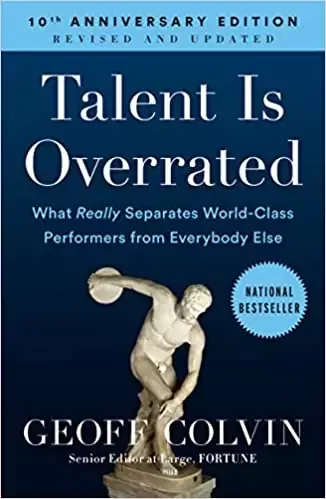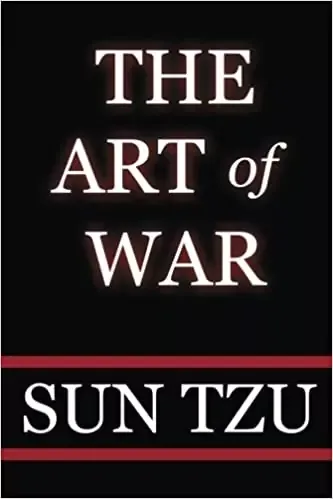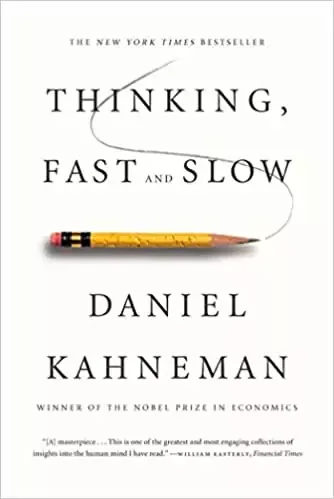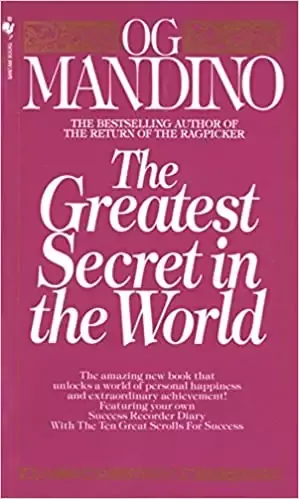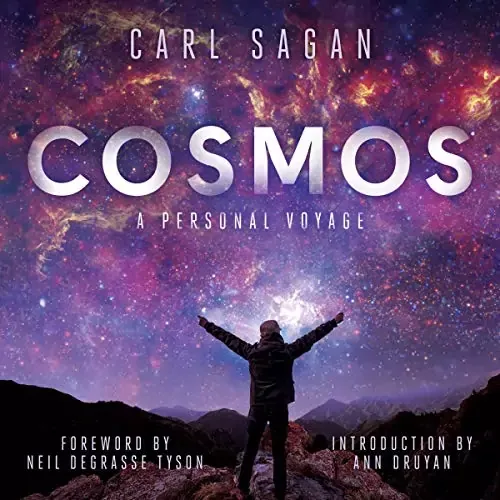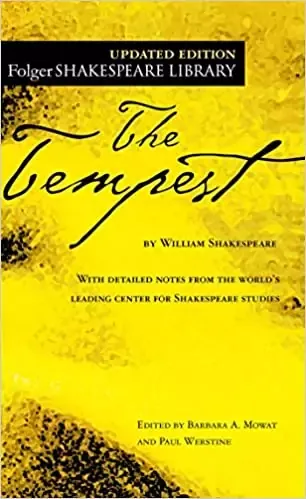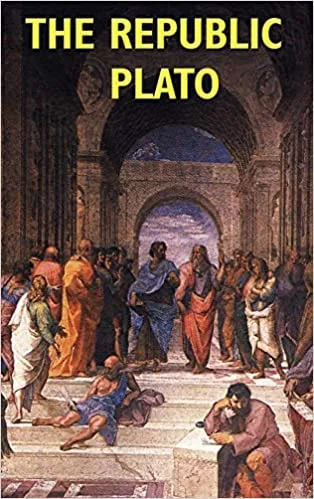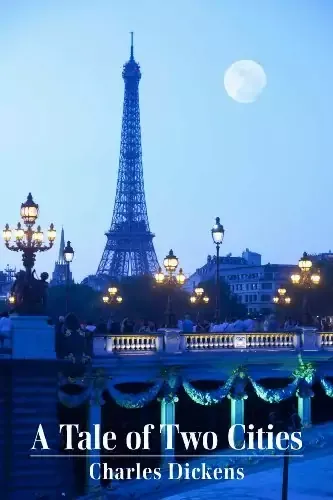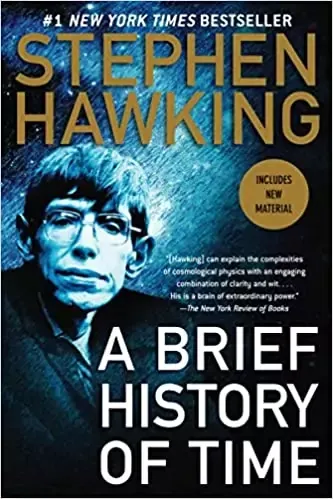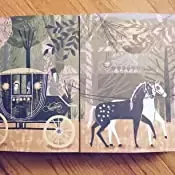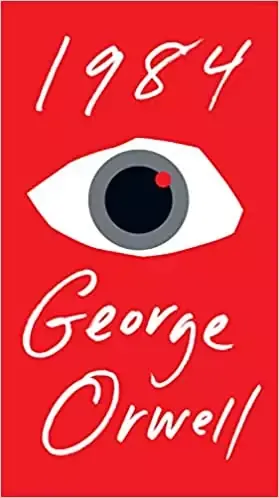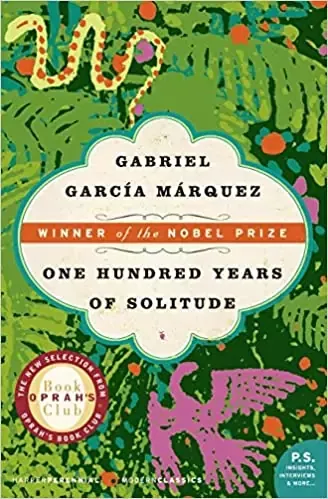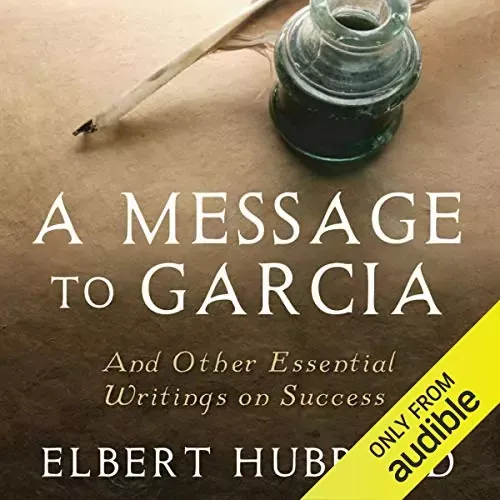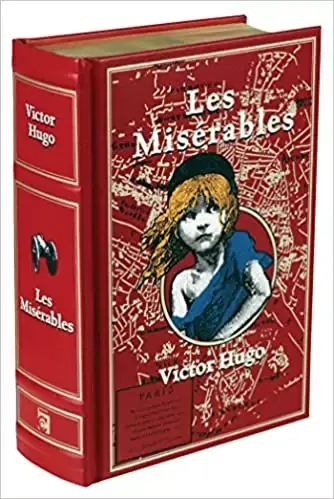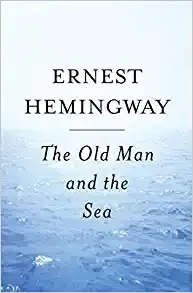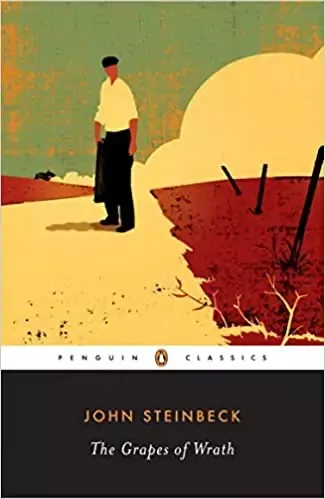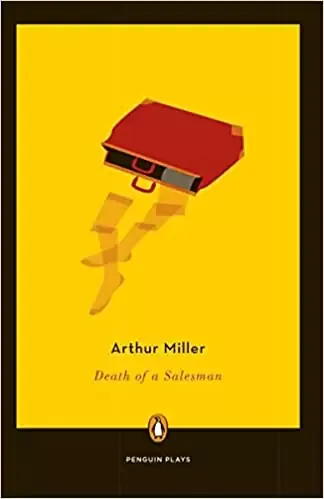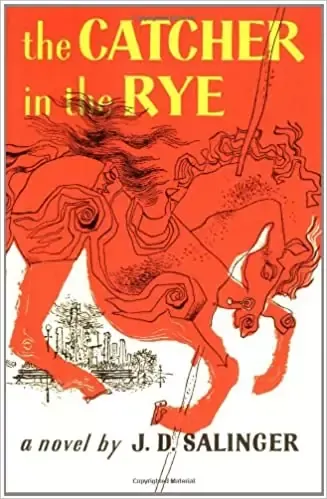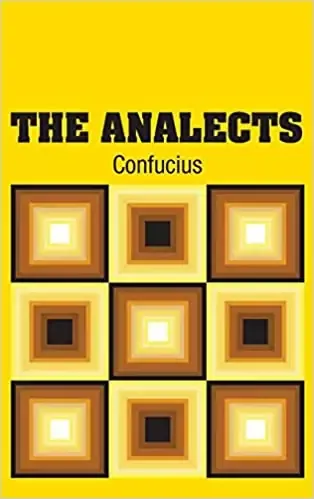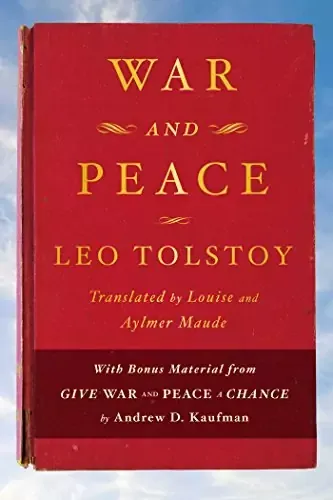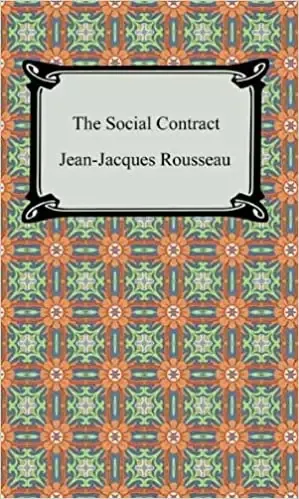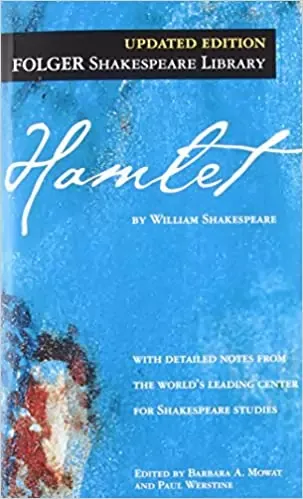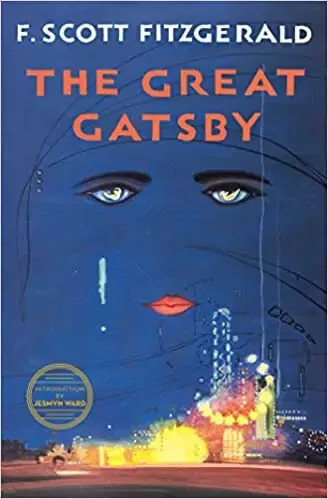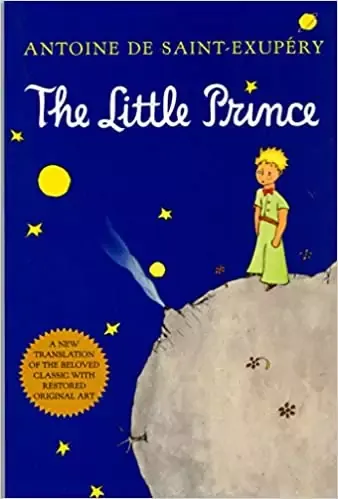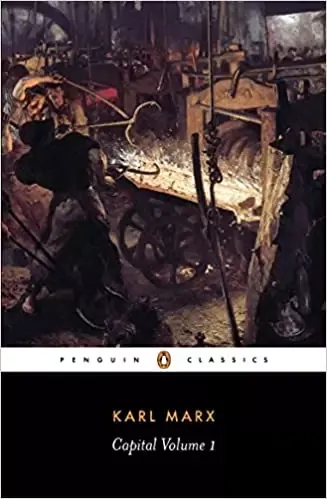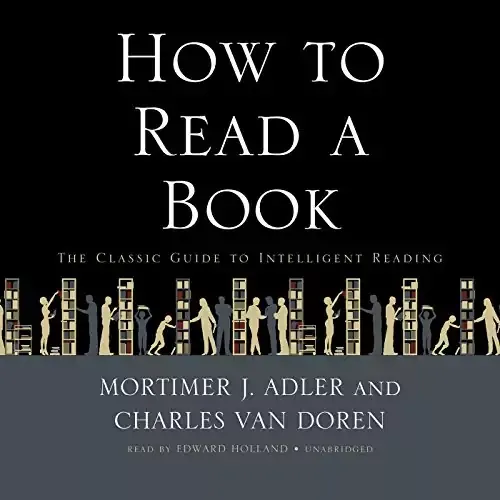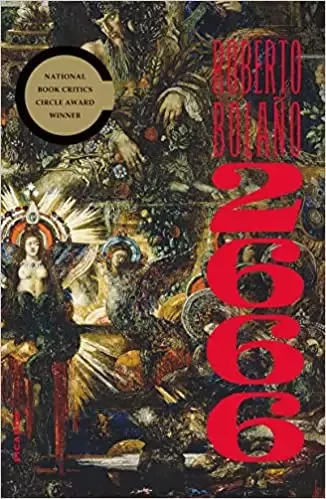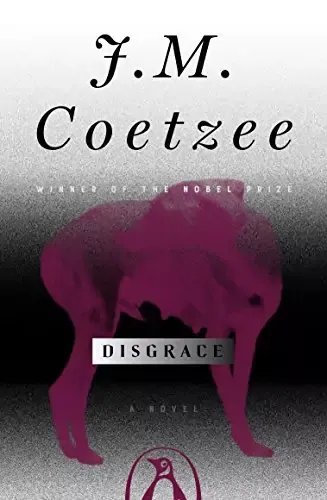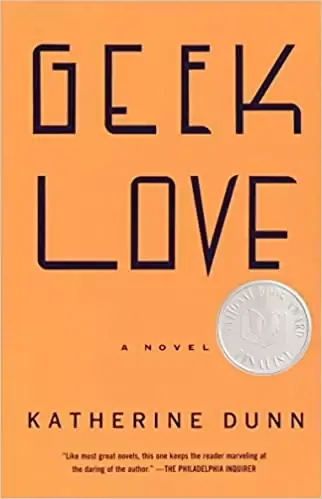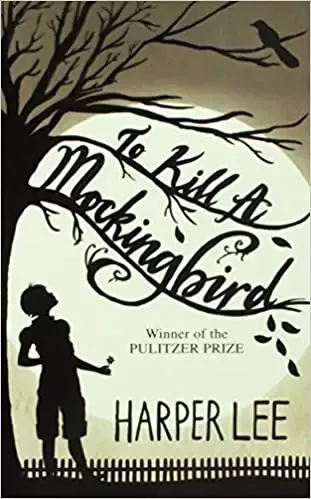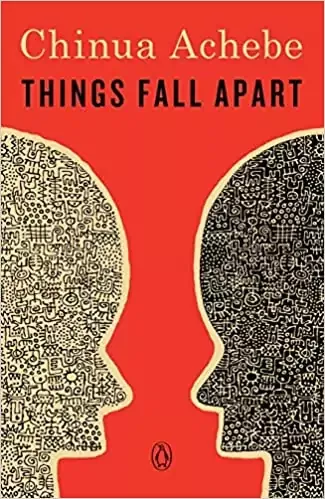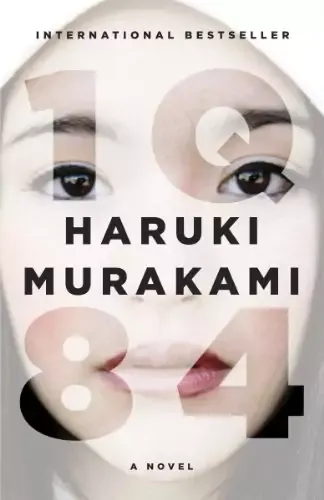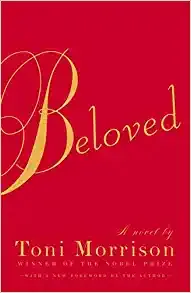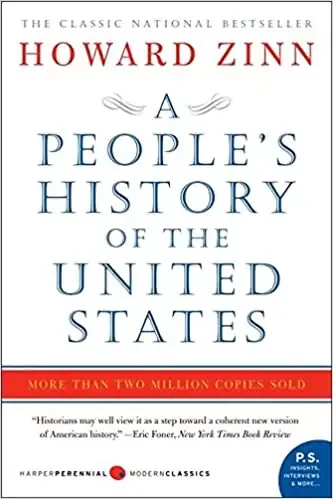In this article, we will talk about "Intellectual Books To Read Before You Die - Most intellectually challenging books", and What are must-read novels before you die?
Intellectuals refer to those mental workers who have a higher degree of cultural expertise among contemporary social workers, and whose specialized profession is to create, accumulate, and disseminate cultural expertise.
Intellectuals are a historical category, that arises with the emergence of classes and the separation of manual and mental labor, and it will also disappear with the abolition of classes and the elimination of the difference between manual and mental labor.
Therefore, it is a social-mental worker stratum formed in a specific historical stage due to the division of labor, the lack of cultural education, and the lack of science and technology.
In different countries and different historical periods, the criteria for determining intellectuals are different.
Here I recommend 41 must-read intellectual books that everyone should read.
Why are certain people so incredibly great at what they do? Most of us think we know the answer—but we’re almost always wrong.
That’s important, because if we’re wrong on this crucial question, then we have zero chance of getting significantly better at anything we care about.
Happily, the real source of great performance is no longer a mystery. Bringing together extensive scientific research, bestselling author Geoff Colvin shows where we go wrong and what actually makes world-class performers so remarkable.
It isn’t specific, innate talent, nor is it plain old hard work. It’s a very specific type of work that anyone can do—but most people don’t.
The title of the book is so funny... "They criticized me again, saying that I directed the war with the romance of the Three Kingdoms and the art of war of Sun Tzu.
In fact, I didn't read Sun Tzu's Art of War at that time; I had seen the Romance of the Three Kingdoms several times, but when commanding the war, who could remember the romance of the Three Kingdoms?
I asked them: since you said that I was under the command of The Art of War by Sun Tzu, I think you must have read it.
Engaging the reader in a lively conversation about how we think, Kahneman reveals where we can and cannot trust our intuitions and how we can tap into the benefits of slow thinking.
He offers practical and enlightening insights into how choices are made in both our business and our personal lives―and how we can use different techniques to guard against the mental glitches that often get us into trouble.
Topping bestseller lists for almost ten years, Thinking, Fast and Slow is a contemporary classic, an essential book that has changed the lives of millions of readers.
In A Walk in the Woods, Bill Bryson trekked the Appalachian Trail -- well, most of it. In A Sunburned Country, he confronted some of the most lethal wildlife Australia has to offer.
Now, in his biggest book, he confronts his greatest challenge: to understand -- and, if possible, answer -- the oldest, biggest questions we have posed about the universe and ourselves.
Taking as territory everything from the Big Bang to the rise of civilization, Bryson seeks to understand how we got from there being nothing at all to there being us.
To that end, he has attached himself to a host of the world’s most advanced (and often obsessed) archaeologists, anthropologists, and mathematicians, traveling to their offices, laboratories, and field camps. He has read (or tried to read) their books, pestered them with questions, and apprenticed himself to their powerful minds.
A Short History of Nearly Everything is the record of this quest, and it is a sometimes profound, sometimes funny, and always supremely clear and entertaining adventure in the realms of human knowledge, as only Bill Bryson can render it. Science has never been more involved or entertaining.
One of the world's most influential writers shares one of the world's greatest secrets for your personal and financial success . . . in his dynamic sequel to The Greatest Salesman in the World, Og Mandino's Spellbinding Bestseller.
“This tremendously challenging book will inspire the reader to realize his moral, spiritual, and financial goals!”—Wallace E. Johnson, Vice Chairman, Holiday Inns, Inc.
“It's inspiring. It's terrific! It motivates the reader.”—W. Clement Stone, Chairman, and CEO, Combined Insurance Company of America
Cosmos retraces the fourteen billion years of cosmic evolution that have transformed matter into consciousness, exploring such topics as the origin of life, the human brain, Egyptian hieroglyphics, spacecraft missions, the death of the Sun, the evolution of galaxies, and the forces and individuals who helped to shape modern science.
The characters exceed the roles of villains and heroes. Prospero seems heroic, yet he enslaves Caliban and has an appetite for revenge.
Caliban seems to be a monster for attacking Miranda but appears heroic in resisting Prospero, evoking the period of colonialism during which the play was written.
Miranda’s engagement with Ferdinand, the Prince of Naples, and a member of the shipwrecked party helps resolve the drama.
- Freshly edited text based on the best early printed version of the play
- Full explanatory notes are conveniently placed on pages facing the text of the play
- Scene-by-scene plot summaries
- A key to the play’s famous lines and phrases
- An Introduction to Reading Shakespeare’s Language
- An essay by a leading Shakespeare scholar provides a modern perspective on the play
- Fresh images from the Folger Shakespeare Library’s vast holdings of rare books
- An annotated guide to further reading
Originating in approximately 380 BC, the Republic is a Socratic dialogue written by the famed Greek philosopher Plato. Often referred to as Plato’s masterwork, the Republic’s central goal is to define the ideal state.
By conceptualizing this model state, Greeks believed it would lead states formed with its principles in mind to function the most efficiently and fairly, striving toward justice and the greater good of society.
This edition includes a foreword by British American philosopher and Plato expert Simon Blackburn.
Widely read around the world by philosophy students and academics alike, Plato’s Republic is sure to pass on its invaluable lessons and enlighten the next generation of thinkers.
A novel by Charles Dickens was published both serially and in book form in 1859. The story is set in the late 18th century against the background of the French Revolution.
Although Dickens borrowed from Thomas Carlyle's history, The French Revolution, for his sprawling tale of London and revolutionary Paris, the novel offers more drama than accuracy.
The scenes of large-scale mob violence are especially vivid, if superficial in historical understanding. The complex plot involves Sydney Carton's sacrifice of his own life on behalf of his friends Charles Darnay and Lucie Manette.
While political events drive the story, Dickens takes a decidedly antipolitical tone, lambasting both aristocratic tyranny and revolutionary excess--the latter memorably caricatured in Madame Defarge, who knits beside the guillotine.
The book is perhaps best known for its opening lines, "It was the best of times, it was the worst of times," and for Carton's last speech, in which he says of his replacing Darnay in a prison cell, "It is a far, far better thing that I do than I have ever done; it is a far, far better rest that I go to than I have ever known." -- The Merriam-Webster Encyclopedia of Literature
A landmark volume in science writing by one of the great minds of our time, Stephen Hawking’s book explores such profound questions as How did the universe begin—and what made its start possible?
Does time always flow forward? Is the universe unending—or are there boundaries? Are there other dimensions in space? What will happen when it all ends?
Told in language we all can understand, A Brief History of Time plunges into the exotic realms of black holes and quarks, of antimatter and “arrows of time,” of the Big Bang and a bigger God—where the possibilities are wondrous and unexpected.
With exciting images and profound imagination, Stephen Hawking brings us closer to the ultimate secrets at the very heart of creation.
Pride and Prejudice is a novel about love and marriage. It
is also a masterpiece of Jane Austen. The novel revolves around the theme of
how Mrs. Bennet married her five daughters.
Based on the love entanglement
between the hero and heroine Darcy and Elizabeth due to pride and prejudice,
four marriages are written about: Elizabeth and Darcy, Jane and Bentley, Lydia and
Wickham, and Charlotte, and Collins.
Darcy is proud and arrogant; Elizabeth is
clever and willful and stands for prejudice. Finally, true love breaks
this pride and prejudice, and the novel ends at the wedding ceremony.
In this novel, Austen vividly reflects the local customs and social customs of England
at the end of the 18th century and the beginning of the 19th century and gives
people artistic imagination. It is a good comedy of social customs. Detail Book Reviews Category.
12. 1984 by George Orwell
"1984" is Orwell's handed-down work, a famous dystopian and anti-totalitarian political allegory in the world literary world. The novel was created in 1948, and the author reversed 48 to 84 as the title of the book.
This book tells about a highly centralized rule that uses extreme methods such as changing history, changing language, and breaking the family to suppress people's thoughts and instincts, and uses a "telescreen" with surveillance and monitoring functions to control people's behavior and to worship the leader.
A hypothetical society that maintains the functioning of society with hatred of enemies at home and abroad, through the life of an ordinary person in this society, Winston Smith, projected the essence of totalitarianism in real life.
Everyone who has experienced or is familiar with such historical events will have a shocking sense of fit after watching "1984". It is like a distinctive label, which awakens the world and does not allow the darkness of this prophecy to become a reality.
The book was finished in a painful state. It is also rare that once I have read it, I can’t remember what was said in an instant so when I start a new chapter, I usually have to turn back to regain my memory. In addition to the dizziness of the Spanish names, the soul of Ursula is most touched.
Then I turned back to find the last fragment of her life, but couldn't find the sympathy for her descendants who felt the most. That moment when she was dying but still clear.
After reading it vaguely to the end, I realized why it is an enduring work that travels through time. I think that every work with great artistic contribution is like a beach in essence.
This is a management book about dedication, loyalty, and
diligence.
After the outbreak of the Spanish-American War, the United
States must immediately contact Garcia, the leader of the Cuban insurgency, and
obtain his cooperation.
Garcia is in the mountains of Cuba - no one knows his
exact location, so he can't be reached.
Someone recommended to the president:
"There is a man named Rowan who has a way to find Garcia, and only he can
find it."
They got Rowan and gave him a letter to Garcia. Three weeks
later, Rowan walked through a dangerous country and handed the letter to
Garcia. Rowan's story has also been well-known.
The concepts of dedication, loyalty, and diligence advocated
in this book have influenced generation after generation.
The book tells
people that what a person really needs is not only to learn the knowledge in
books but also to listen to other people's guidance.
It needs a kind of
professionalism, trust from the superior, and take immediate action. Do it with
all your heart - it's like sending a letter to Garcia.
This is another magnificent masterpiece created by Hugo, the
romantic leader of France in the 19th century, after "Notre Dame de
Paris".
With outstanding artistic charm, the book shows a splendid picture
of modern social and political life in France from the French Revolution in
1793 to the Paris people's uprising in 1832.
It reflects Hugo's extraordinary
talent in narration to the greatest extent. It is a combination of realism and
Romanticism in the history of world literature.
Fan. The novel reflects Hugo's humanistic thought,
which is full of Hugo's concern for the fate of human suffering and unswerving
belief in the future, which has a strong artistic appeal.
This book tells the story of a fisherman. Santiago, an old
Cuban fisherman finally caught a large Marlin without catching fish for 84
consecutive days.
However, the fish was so large that he dragged his boat on
the sea for three days, exhausted, and was killed and tied to one side of the
boat.
On his way home, he was attacked by another shark. When he finally
returned to port, he was left with only his head, tail, and spine. In the old
Santiago sea days, his friends have been loyal to the sea waiting for his
return with confidence.
This novel won the Pulitzer Prize in 1953 and the Nobel Prize for Literature in 1954. Hemingway laid a prominent position in world
literature.
Click Here To Check Out More Author Ernest Hemingway Books on Amazon.
The Republic is an important dialogue record and a typical
comprehensive work of Plato. It involves many problems such as philosophy,
politics, ethics, education, psychology, society, family, religion, art, and so
on.
The Republic is a must-read book in Western intellectual circles, which
is both ancient and modern.
If we want to understand contemporary Western
social and political culture, we need to trace back to the source and
understand ancient Western political and cultural thoughts.
The Republic is
a source of ancient Western political thought and is the first remaining
monograph reflecting ancient Western political thought.
Click Here To Check Out More Author Plato's Books on Amazon.
This book is the representative work of Steinbeck, a famous
American writer, and Nobel Prize winner.
In the 1930s, during the economic panic
in the United States, a large number of farmers went bankrupt and fled from the
wilderness. The writer once followed the peasants from Oklahoma to California.
He
was shocked by what he saw along the way, "there are 5000 families about to
die of starvation. The problem is very acute..."
With a profound and
realistic style, he shows the scene of American farmers struggling and
resisting on the line of life and death at that time. After the publication of
the novel, it caused panic in the ruling class in each state.
Many States
banned the publication of novels, and even a novel named "the grapes of
Happiness" was published to show tit for tat.
But nothing can shake the important position of the grapes of wrath in the history of modern American
literature.
The Death of a Salesman is the peak work of Miller's drama
creation. It won the Pulitzer Prize and the New York Drama Critics Award, which won him an international reputation. Willy Loman, a salesman, is asking for help because
of his old age.
He worked in the office but was dismissed by his boss.
Willy was so depressed that he blamed his two sons for not doing a good job.
The son rebuked him and ridiculed him as a poor street runner.
The old salesman
had a lifelong dream, but now they are all disillusioned, and their self-esteem
is seriously bruised. He was like a dreamer with his late.
The big brother who made a fortune in Africa argued about
his hobby career. Finally, to get a life insurance premium for his
family, he drove out at night and crashed and died.
The play reflects Miller's
tragic reality and life characteristics revealing the true meaning of The American dream and warning us that the pursuit of material wealth alone can not bring
freedom and enrichment of spirit; otherwise, the dream will become illusory and
will inevitably lead to destruction.
Click Here To Check Out More Author Arthur Miller Books on Amazon.
Holden, the protagonist of this book, is a middle school
student, born into a rich middle class of 16-year-old. After being expelled from
school for the fourth time, he did not dare to go home rashly.
He spent a day
or two wandering in the most prosperous New York City in the United States,
staying in an Inn, visiting nightclubs, making friends with friends, and drinking
too much He saw all kinds of ugliness in capitalist society and contacted all
kinds of characters, most of them "fake" hypocrites.
Holden could hardly bear to see what happened around him. He
even wanted to escape from the real world and pretend to be a deaf and dumb man
in a remote country. However, it was impossible to do so.
As a result, he
could only live in contradiction: he hated movies the most in his life, but he
had to spend time in the cinema in boredom; he hated sexual relations without love He hated his vain and vulgar girlfriend Sally, but he was infatuated with
her beauty and couldn't help cuddling with her.
Therefore, although he was not used to the world, he had to
be depressed and panicked, comforted himself with all kinds of unrealistic
fantasies, and deceived himself. Finally, he still had to compromise with the
real society, which could not be regarded as a real rebellion. This is the
tragedy of Salinger and Holden.
The author of this book dissects the complex psychology of
teenagers with keen insight, observes the spiritual essence through phenomena,
and vividly depicts all aspects of Holden's spiritual world, which not only
reveals his decadent and declining side affected by the environment, but also
writes his simple, sensitive, and kind-hearted side.
To some extent, it really
reflects the characteristics of teenagers in the changing period of youth It
has aroused great repercussions among young people in Western society, and many
adults regard it as the key to enlightening themselves to understand the younger
generation.
Click Here To Check Out More Author J.D. Salinger's Books on Amazon.
The Analects of Confucius is a collection of quotation-style
thought prose. As early as the late spring and Autumn period when Confucius set
up a forum to give lectures, its main content was initially created.
After
Confucius died, his braids and his disciples taught him his opinions from
generation to generation, and gradually recorded the quotations, words, and
deeds of these oral records, and finally compiled the theory into a book in the
early Warring States period, so it is called "Lun".
The Analects of
Confucius mainly records the words and deeds of Confucius and his disciples, so
it is called "language".
In war and peace, there are not only narratives of major
historical events in Russia and Western Europe, but also fictional stories; it
not only describes the fighting of gold, iron, and horse, sword light and
shadow,
but also the comfortable and peaceful daily life; there is both
impassioned discussion on the world and delicate and graceful Lyrics.
The author
has created a series of distinctive characters with superb artistic skills and
has written all kinds of human manners.
Turgenev, a famous writer, called this
novel "a more direct and accurate understanding of the character and the temperament of the Russian people and the whole Russian life", and reading
it "is better than reading hundreds of works on Ethnology and
history".
On Social Contract is the most famous representative work of
Rousseau, a French Enlightenment thinker.
His famous sentence "Everyone is
born free, but everywhere in chains" inspired countless people with lofty
ideals to devote themselves to the cause of human liberation in pursuit of
democracy and freedom at all times and all over the world.
His idea of
"people's sovereignty" has deeply influenced the American Revolution its Declaration of Independence, and the French Revolution, and its Declaration
of Human Rights. It is a classic work that contemporary youth can not but read.
Hamlet is the longest of all Shakespeare's plays. It is
Shakespeare's most famous play, which has profound tragic significance, complex
characters, and rich and perfect tragic artistic techniques, representing the highest achievement of the whole Western Renaissance literature.
Together with
Macbeth, King Lear, and Othello, Shakespeare's "four tragedies" are
formed.
This book is based on the ancient legend that the prince of
Denmark avenged his father. The king of Denmark died suddenly. The king's
younger brother inherited the throne and married his old sister-in-law.
Mret saw the ghost of his father in pain. The ghost told the
prince that he had been robbed of his life, the throne, and his wife by his
younger brother in his sleep, and ordered Hamlet to avenge him. So Hamlet began
the tortuous course of revenge
In the 1920s, the air was filled with an atmosphere of
singing and drinking. By chance, Nick, a poor employee, broke into Gatsby's
secret world.
He was surprised to find that his only obstacle was the small
green light on the other side of the river, where his beloved Daisy lived.
However,
the cold reality can not hold the illusory dream. In the end, the goddess in
Gatsby's heart is just a material girl in the world. When all the truth is
revealed, Gatsby's tragic life is like fireworks, resplendent only for a
moment, disillusionment is eternal.
In Fitzgerald's works, the elegy of the
"Jazz Age" is like a poem like a dream, leaving a strong ink mark in
the history of contemporary American literature.
At the end of the 20th century, the authority of American
academic circles selected one hundred best novels from the hundred years of
English literature. The Great Gatsby ranked second and ranked among the
Contemporary Classics.
"The Little Prince" is a fairy tale written for
adults, the saddest story in the world, a fable about love and responsibility.
The novel tells the story of a pilot stranded in the African
desert due to a plane crash and encounters a little alien: the little prince is
a melancholy little man, he comes from a very small planet, where everything is
so small and small,
the little prince is easy to be sad, his little life is
tender and kind Such a distressing little prince met the author in the Sahara
desert and they were intimate with each other bit by bit,
so we cried with the little prince laughed with the little prince and became a child again with
the author, and found our lost innocence and moving.
Meditation is written by the only ancient Roman philosopher
emperor Marco Aurelius.
This 12-volume dialogue between himself and himself,
most of which was written by him in anmarauton, is a milestone of Stoic
philosophy.
"Meditation" comes from the author's feelings about the
body of the court and the chaotic world in which he lives.
He pursues a calm
and optimistic life free from passion and desire. In the book, Marco Ole
expounded on the relationship between soul and death and analyzed individual virtue,
personal liberation, and personal responsibility to society.
He required that he
often introspect to achieve inner peace, abandon all useless and trivial
thoughts, and think with integrity. What's more, we should not only think about
good and aboveboard things but also put them into action.
"Das Kapital" is a great scientific work that Marx
devoted his whole life to completing.
It is the crystallization of his life-long
commitment to lofty beliefs and scientific research.
Promising review:
There is an enormous collection of valuable information in Volume 1 of Marx's Capital. Volume 1, moreover, serves very effectively as the first of three volumes in which Marx gives truly compelling evidence of his genius -- how else could one author come to terms with this massive account of the reality of capitalist production as Marx uniquely understands it? While it soon becomes abundantly clear that Marx was a master prose stylist, there is no mistaking the fact that he did not write for the ease and convenience of his readers.—Read More—not a natural
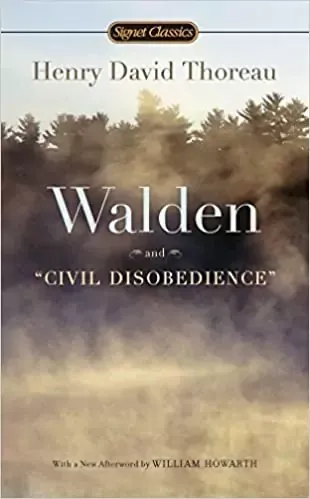
This is a quiet, calm, and wise book. His analysis of life, criticism of customs, amazing language, flashing words, and unique insights, and intriguing. Many of the pages are image descriptions, beautiful and exquisite, like the purity and transparency of lake water, and the dense green of mountains and forests; some pages are thorough, incisive, and inspiring.
After reading a book, complete a grand spiritual baptism. It's been a long time since I read such a favorite book. Thoreau not only helped me complete a natural journey without leaving home but also washed my filthy soul with his detached outlook on life. Reading his books is happy, happy, contented, and thirsty. Walden will fill my excerpts like many classics.
Like Thoreau, although I can't live like him, and I don't have the courage or ability to be like him, he has fulfilled the dream of returning to the hermit that has more or less existed in everyone's heart. Since you can't be born, you can experience a kind of purity and a kind of nature from those who can. Thank you Walden for allowing us to have heart-to-heart communication across time and space.
Promising review:
I first read "Walden" in a freshman seminar course in American Lit, and it was quite daunting reading at the time. Thoreau seemed an over-rated author: he darts from topic to topic with little to no transition, he quotes obscure passages, and he sermonizes. Perhaps most frustrating of all, he wants his writing to be ambiguous (see, for instance, Chapter 18), and for an assiduous college student eager to absorb and analyze, this can be quite an overwhelming experience. So, I got very little of Thoreau at the time. —Read More—Dutch
Under the cover of each book, there is a skeleton of its
own. As a reader of analysis and reading, the responsibility is to find out the
skeleton.
When a book appears in front of you, the muscles cover the bones, and
the clothes wrap the muscles, which can be said to come in full clothes. The
reader doesn't have to uncover its coat or tear off its muscles to get at it.
The skeleton is under the soft skin, but you must use a pair of
X-ray perspectives to see this book because that is the basis for understanding
a book and mastering its skeleton.
31. 2666 by Roberto Bolano
This is an unforgettable novel, a novel that can be described in all words. The story takes block writing as the structure and expresses the author's anxiety and indignation about society and the fate of the whole of mankind from a panoramic perspective.
It is divided into five parts. The five parts are connected by a key character, Reinbold, who officially appears in the fifth part. The first "literary critic" tells the story of the same German writer, Reinbold, by four literary critics since the 1980s. They lived and worked in different places.
They met at international conferences and became friends and lovers because of the same academic views. Finally, at a meeting in Mexico, they heard about the killing of women.
2666: the greatest novel of the 21st century! A masterpiece beyond "one hundred years of solitude"! From London to New York, everyone loves Bolanyo!
The Best Novel award of the National Association of Book Critics, the first of the ten best Books of the Year by the New York Times, the Best Novel of the Year by Time magazine, and the 100 Best Western Language novels in the past 25 years! A great but not perfect novel, as powerful as a torrent, leading readers to the unknown!
"A book full of passion and poetry. It has a philosophy. It has a sense of humor. It also has some creepy Adventures... With concise, fast-paced prose as the background, with a close combination of strength and beautiful style.
Edward Abby lived in the Moab desert of Utah for three seasons. What he found about the land before him, the world around him, and the heartbeat was a fascinating story. Sometimes he screamed. He was always a staff member of a disappeared place, but it was worth recalling and living repeatedly.
This book gives a clear introduction to the theme and form of the novel based on the author's years of practical experience in teaching fiction in British universities and as a South African-born and educated scholar.
As a South African-born writer or one of the most widely read novels "about" South Africa, Nobel laureate JM Coetzee (the second book), "disgrace" (1999), is a favorite of reading groups and a favorite of many college English postcolonial literature or international literature courses.
Disgrace is sometimes regarded as a terrible image of post-apartheid South Africa, but it is also interpreted as a novel about resignation and redemption which is full of hope in the end.
Click Here To Check Out More Author J. M. Coetzee's Books on Amazon.
Geek Love is the story of the Binewskis, a carny family whose mater- and paterfamilias set out with the help of amphetamine, arsenic, and radioisotopes to breed their own exhibit of human oddities.
There's Arturo the Aquaboy, who has flippers for limbs and a megalomaniac ambition worthy of Genghis Khan . . . Iphy and Elly, the lissome Siamese twins . . . albino hunchback Oly, and the outwardly normal Chick, whose mysterious gifts make him the family's most precious-and dangerous-asset.
As the Binewskis take their act across the backwaters of the U.S., inspiring fanatical devotion and murderous revulsion; as its members conduct their own Machiavellian version of sibling rivalry,"
Geek Love throws its sulfurous light on our notions of the freakish and the normal, the beautiful and the ugly, the holy and the obscene. Family values will never be the same.
Lawyer Atticus Finch defends the real mockingbird of Harper Lee's classic, Pulitzer Prize-winning novel--a black man charged with the rape of a white woman. Through the eyes of Atticus's children, Scout, and Jem Finch, Harper Lee explores with rich humor and unanswering honesty the irrationality of adult attitudes toward race and class in the Deep South of the 1930s.
Harper Lee’s only novel in his life... The main storyline is the rape of Tom Robinson, a black man... Judging from Atticus’s interrogation of the plaintiff and her father... Robinson's innocence is obvious... Then the racial discrimination and prejudice of that era were still sentenced.
He is guilty... After losing hope in jail He tried to escape through the wall (I think it should be suicide)... Died under the guns of the guards... Before the trial... The author treats everyone in that town and the town.
I made a deep preparation... it seems that everything is irrelevant... and then in the end... the layers of the coat are peeled off... it turns out that everything is intertwined... aside from the case... there is still a lot of heartwarming in the book The Place...especially in Atticus, although he always seems to be busy with work, his love and care for the children are overflowing between the lines! He calmly guided the children on how to behave and how to do things... Plus, I really like Scout's character of simply and rudely fighting with boys all day...
36. Things Fall Apart by Chinua Achebe
In the beginning, I just read with the mentality of looking at things, because I could roughly imagine the progress of the story because of the class, but I saw that Okonkwo had trouble sleeping and eating because of Ikemefuna’s death, and it did not match my own perception of a man.
My son finally broke down because of the latter’s conversion to Christianity. Seeing that he had to face the incomprehension, disappointment, and final despair of the Clan, which had been impacted by Christianity + colonial rule, and collapsed after the colonial rule, he and I seemed to have experienced the same. Confusion and pain.
The book begins with a village-wide convention and ends with another convention and its aftermath. In similar scenes and voices, the village’s beliefs and laws are different. In the end, Okonkwo's death, under the observation of the District Commissioner, was simple and cold, but it was teary.
37. A Visit from the Goon Squad by Jennifer Egan
I would like to say that with the rock & roll writing style, I may not be able to understand for a while, coupled with cultural differences, and language barriers, the whole book looks a bit like a cumbersome presentation of small stories.
The future setting of the last chapter and the return of the blood of the decadent middle-aged are slightly frivolous, but it is also a proper return to the beginning. The stories of Sasha, Rhea, Jocelyn, etc. are particularly sad, and the author obviously writes with a deeper female perspective.
Many commentaries and novels reflect contemporary America, but the racial contradictions are not touched very much. It doesn't get in the way, it's good enough.
After barely clarifying the relationship between the characters and the timeline, I think it is quite interesting to jump and cut the narrative, although it may be more suitable for the theme and rock material of the passage of time in the film medium. You can dig deeper, but you will see many familiar New York landmarks!
38. 1Q84 by Haruki Murakami
The more I read, the more I feel that the novel is more meaningful to the author than to the reader, just like Murakami running a marathon, no matter how interested viewers are, they will get tired from time to time, but to the runners, it is like life itself. The language is fairly easy.
There are 100 pages left to read. Because I have never had many expectations for Murakami's storyline, the first two are good, and the delicate psychological description in the novel and the loneliness of modern society are as shocking as ever.
If it weren't for the spoilers for 3, I think the burdens and foreshadowings so far can be buried, but... if none of these can be answered in the end, I really want to cry. . . I watched attentively and read such a thick book as a dictionary for almost a week.
39. The Fellowship of the Ring by J.R.R. Tolkien
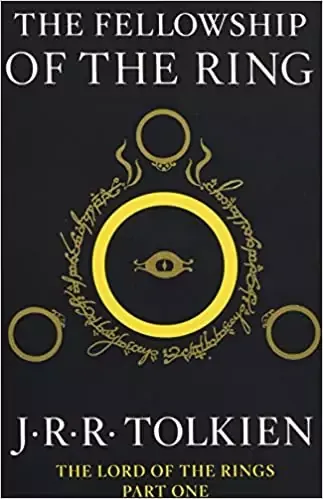
Summary & Review:
After putting on a book for several years without the courage to open it, I finished reading it with pleasure in these two weeks. It's the job that's never started as takes the longest to finish. "Then shouldering their burdens, they set off, seeking a path that would bring them over the grey hills of the Emyn Muil, and down into the Land of Shadow."
There are difficulties and obstacles in the front and chase an interception in the back. Compared with Bilbo's brisk and unexpected trip under the sun, Frodo and his party are really dark all the way forward.
Arriving at Rivendell, it seemed to take a breath, but it was just the beginning. Sam was particularly moved by Hobbit's friendship. It must be matched with the map, otherwise, it will be more celestial. Inverted sentences bring epic beauty.
40. Beloved by Toni Morrison
Toni Morrison made the third shot. Always make people feel endlessly sweet and sad. Look for the most human part in the madness, cruelty, irrationality, and even inhumanity. Think of Byatt’s comment: reality can be cruel and absurd, but the writer can have love and human understanding.
White people believed that whatever the manners, under every dark skin, was a jungle. Swift unnavigable waters swinging screaming baboons, sleeping snakes, red gums ready for their sweet white blood. In a way, he thought, they were right.
The more colored people spent their strength convincing how gentle they were, how clever and loving, how human, the more they used themselves up to persuade whites of something Negros believed could not be questioned, the deeper and more tangled the jungle grew inside.
But it wasn't the jungle blacks brought with them to this place from the other (livable) place. It was the jungle white folks placed in them. And it grew. It spread.
41. A People's History of the United States by Howard Zinn
This is not a book about American history, but about how miserable people are. How miserable the Aborigines are, how miserable are those who don't want to join the army to participate in the War of Independence, how miserable are the workers who strike, and how miserable the blacks are... not the worst, only worse.
This book can be summed up in a word: the expelled Indians, the enslaved blacks, the exploited poor whites, the discriminated against women, and the bombed foreigners, all resist, and overthrow the evil American government! The communist tendency of this book is too strong,
so it is not suitable as an enlightenment reading for American history, but it helps to understand the class nature of American society (the same for all mankind), understand the distribution mechanism of wealth and power, and absorb the humanitarian spirit (author Really Good Father).
What are the most intellectually challenging books?
Without question, it’s a tie between Walden by Henry David Thoreau and War & Peace by Leo Tolstoy. It doesn’t matter if you haven’t read either—they’re both so well-known that even a high school student would recognize them as among some of history's greatest books.
The book is just gorgeous: deep and philosophical in one minute, light and anecdotal in its exploration of life in 19th-century Russia and America in another.
When you finish it, you'll feel better about your place in existence; not to mention inspired to do great things with your own life. What more could an intelligent reader ask for?
Additionally, I’ve read and recommend the most intellectually challenging books.
- Sapiens: A Brief History of Humankind
- The Untethered Soul: The Journey Beyond Yourself
- The Last Lecture
- Factfulness: Ten Reasons We're Wrong About the World
- The Hard Thing About Hard Things
- Blink: The Power of Thinking Without Thinking
- Freakonomics
- The Shallows
- The Souls of Black Folk
- Man's Search for Meaning
Conclusion: Intellectual Books Everyone Should Read
Generally speaking, there are three modern definitions of intellectuals. The first definition refers to people who are mainly engaged in occupations such as thought, writing, and spiritual life; the second definition mainly comes from Marxism. Intellectuals refer to people who are engaged in teaching, lawyers, journalism, and other occupations.
This definition in Mainland China is more popular; the third definition refers to cultural intellectuals, mainly refers to people with special abilities in culture and art, because of their ability to obtain a certain right to speak, so that they can influence the public and other things with this right.
Intellectuals refer to those mental workers who have a relatively high degree of cultural expertise among contemporary social workers, and whose specialized occupation is to create, accumulate, and disseminate cultural expertise.
Intellectuals are a historical category, that arises with the emergence of classes and the separation of manual and mental labor, and it will also disappear with the abolition of classes and the elimination of the difference between manual and mental labor.
Therefore, it is a social-mental worker stratum formed in a specific historical stage due to the division of labor, the lack of cultural education, and the lack of science and technology. In different countries and different historical periods, the criteria for determining intellectuals are different.
The criteria for determining intellectuals at the current stage in my country are mental workers who have an educational level of technical secondary school or above and are engaged in scientific research, education, cultural communication, technology application, business management, and other professional and technical work.
Know someone who might be interested in this article? Share it with them.


